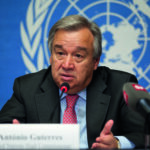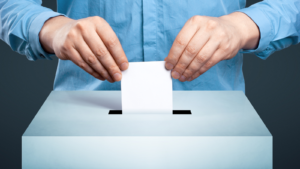A United Nations Secretary-General’s High-Level panel on Digital Cooperation has launched a report to instigate international cooperation around the challenges and opportunities posed by digital technologies.
“The scale, spread and speed of change made possible by digital technologies is unprecedented, but the current means and levels of international cooperation are unequal to the challenge,” Mr. Guterres said.
The UN Secretary-General has appointed Ms. Melinda Gates, Co-Chair of the Bill & Melinda Gates Foundation, and Mr. Jack Ma, Executive Chairman of Alibaba Group as Co-Chairs of the Panel.
The Panel, of which the objective is to examine how digital technologies can contribute to achieving theAgenda2030, has a total of 20 members, representing experts from government, private industry, civil society, academia and the technical community. You can find the full list here.
To foster an inclusive digital economy and society, the report recommends:
-By 2030 every adult should have affordable access to networks and their financial and health services.
-Creating a broad multi-stakeholder alliance, including the UN, to create a platform for sharing digital public goods in a manner that respects privacy and in areas related to SDGs.
-The main stakeholders, such as the private sector, civil society, national governments, banks and the UN should adopt policies that support full digital inclusion and equality for women and traditionally marginalized groups.
-A set of metrics for digital inclusiveness be urgently agreed, measured worldwide and detailed in multilateral organizations like the UN, IMF, World Bank, OECD…
On a human and institutional capacity, the report recommends:
-The establishment of regional and global digital help desks to help governments, civil society and private sectors understand issues revolving technology.
On human rights, the report recommends:
-A UN Secretary-General agencies-wide review of how existing human rights accords apply to new and upcoming technologies.
-Social media enterprises collaboration with governments, civil societies and human rights experts to prevent human rights violations.
-Autonomous intelligent systems should be explained and have human accountability for their use, complying with ethical standards.
On trust, security and stability, the report recommends:
-The development of a Global Commitment to Digital Trust and Security to shape a shared vision and propose priorities for action.
On global cooperation, the report recommends:
-The UN Secretary-General should facilitate an agile and open consultation process to develop updated mechanisms for global digital cooperation.
-A multi-stakeholder “systems” approach for cooperation and regulation that is adaptive, agile, inclusive and fit for purpose for the fast-changing digital age.
Read more
Access the full report The age of digital interdependence

